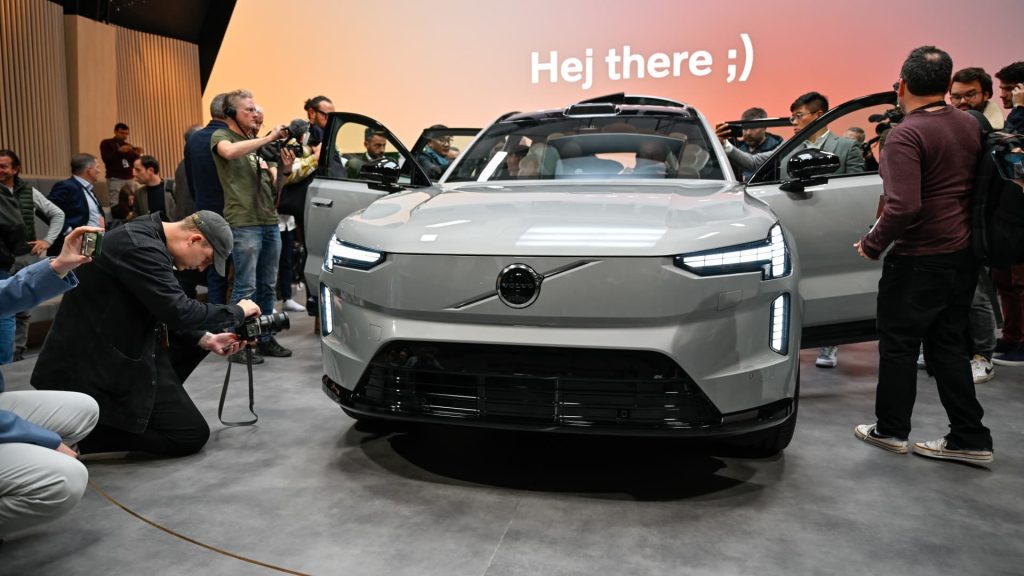Sweden’s Volvo Cars saw a surge in its stock price after reporting record single-month sales for March and strong electric vehicle growth in Europe. The company, majority-owned by Chinese group Geely, sold 78,970 cars last month, a 25% increase from the previous year. Total first-quarter sales were up 12% annually, reaching 182,687. The new all-electric EX30 model contributed to this growth, and Volvo Cars plans to focus on increasing sales of the vehicle in the coming months.
In Europe, year-on-year sales of electric vehicles rose by 22% in the quarter and 34% in March, aligning with overall sales growth in the market. However, sales of electric models to China, the largest EV market, experienced a 36% decline despite a 4% increase in overall sales. Performance in the U.S. varied, with a 44% growth in hybrid vehicles but a 65% decrease in all-electric sales. Overall sales growth in the U.S. was 17%.
Volvo Cars’ Deputy CEO Björn Annwall credited the strong sales numbers to the company’s strategy and product diversity, offering fully electric cars alongside plug-in hybrids and mild hybrids. The company announced plans in 2021 to become a “fully electric car company” by 2030, phasing out all non-electric models and hybrids. As part of this commitment, Volvo Cars recently decided to decrease its stake in electric vehicle maker Polestar and focus on the next phase of its transformation.
The automotive industry is closely monitoring electric vehicle sales as the debate continues on the potential overestimation of forecasts for the next generation of automobiles. Some automakers, including Ford Motor, Mercedes-Benz, and Volkswagen, have adjusted their EV strategies in the past year amid concerns about consumer demand for all-electric models. Volvo Cars’ success in the electric vehicle market demonstrates the importance of offering a range of options to meet varying consumer preferences and demands for sustainable transportation.
The growth in electric vehicle sales for Volvo Cars reflects a broader trend in the automotive industry towards electrification. With governments around the world setting ambitious targets for reducing carbon emissions, automakers are under increasing pressure to transition towards electric vehicles. Volvo Cars’ strategy to focus on electric and hybrid models aligns with this global shift towards cleaner transportation options. By prioritizing electric vehicle development and sales, Volvo Cars is positioning itself as a leader in sustainable mobility and responding to evolving consumer preferences for environmentally friendly vehicles.















